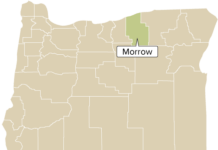The North Carolina Utilities Commission (NCUC) has approved a solar and storage microgrid project from Duke Energy.
In the town of Hot Springs in Madison County, N.C., the company will proceed with a solar- and battery-powered microgrid system that will help improve electric reliability, provide services to the overall electric system and serve as a backup power supply to the town of more than 500 residents.
“Projects like this will lead to a smarter energy future for the Carolinas,” notes Dr. Zak Kuznar, Duke Energy’s managing director of microgrid and energy storage development.
The Hot Springs microgrid will consist of a 2 MW AC solar facility and a 4 MW lithium-based battery storage facility.
As part of the plan, the company will also connect a 9 MW lithium-ion battery system at a Duke Energy substation site in the Rock Hill community of Asheville, N.C. The battery will primarily be used to help the electric system operate more efficiently and reliably for customers.
Together, the two projects, costing around $30 million, should be operational in early 2020.
The company currently has a smaller solar and storage microgrid project in operation in Haywood County, N.C. It has been serving a communications tower on Mount Sterling in Great Smoky Mountains National Park since 2017.
Previously, the company operated a microgrid that served a local fire station in Charlotte and continues to operate a microgrid at its Mount Holly research center in Gaston County. The company is also currently working on proposed projects in South Carolina.




